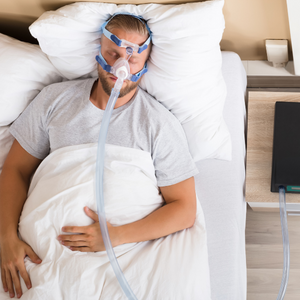A Good Night’s Sleep May Make It Easier To Stick To Exercise And Diet Goals
People who reported getting regular, uninterrupted sleep did a better job sticking to their exercise and diet plans while trying to lose weight, according to preliminary research presented at the American Heart Association (AHA)’s Epidemiology, Prevention, Lifestyle & Cardiometabolic Health Scientific Sessions 2023 in Boston.
“Focusing on obtaining good sleep — seven to nine hours at night with a regular wake time along with waking refreshed and being alert throughout the day — may be an important behavior that helps people stick with their physical activity and dietary modification goals,” said Christopher E. Kline, PhD, an associate professor in the department of health and human development at the University of Pittsburgh.
The researchers examined whether good sleep health was related to how well people adhered to the various lifestyle modifications prescribed in a 12-month weight-loss program. The program included 125 adults (average age, 50; 91% women; 81% white) who met criteria for overweight or obesity (body mass index of 27-44) without any medical conditions requiring medical supervision of their diet or physical activity.
Sleep habits were measured at the beginning of the program, at 6 months and at 12 months, through questionnaires, a sleep diary and 7-day readings from a wrist-worn device that recorded sleep, waking activity and rest. These measures were used to score each participant as “good” or “poor” on six measures of sleep: regularity; satisfaction; alertness; timing; efficiency (the percentage of time spent in bed when actually asleep); and duration. A composite sleep health score of 0-6 was calculated for each participant, with one point for each “good” measure of sleep health, with higher scores indicating better levels of sleep health.
Adherence to the weight loss program was measured by percentage of group intervention sessions attended; percentage of days in which each participant ate between 85%-115% of their recommended daily calories; and change in daily duration of moderate or vigorous physical activity.
Participants had an average sleep health score of 4.5 out of 6 at the start of the study, at 6 months and at 12 months.
After adjusting the sleep health scores for age, gender, race and whether or not there was a partner sharing the bed, the researchers found that better sleep health was associated with higher rates of attendance at group interval sessions, adherence to caloric intake goals and improvement in time spent performing moderate-vigorous physical activity. Those with better sleep health:
- Attended 79% of group sessions in the first six months and 62% of group sessions in the second six months.
- Met their daily caloric intake goals on 36% of days in the first six months and 21% in the second six months.
- Increased their total daily time spent in moderate-vigorous activity by 8.7 minutes in the first six months; however, their total time spent decreased by 3.7 minutes in the second six months.
The decreases in the second six months were expected, Kline said. “As one continues in a long-term behavioral weight loss intervention, it’s normal for the adherence to weight loss behaviors to decrease,” he said.
Additionally, while there was an association between better sleep health scores and an increase in physical activity, it was not strong enough to be statistically significant.
“We had hypothesized that sleep would be associated with lifestyle modification; however, we didn’t expect to see an association between sleep health and all three of our measures of lifestyle modification,” he said. “Although we did not intervene on sleep health in this study, these results suggest that optimizing sleep may lead to better lifestyle modification adherence.”








